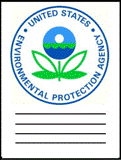United States Environmental Protection Agency

United States Environmental Protection Agency: Publications
Document Type
Article
Date of this Version
9-1993
Citation
United States Environmental Protection Agency, Office of Radiation and Indoor Air, Radon Division, September 1993
Air and Radiation (6604J)
402-R-93-D47
Includes contributions by United States Geological Survey Radon Team: Linda C. S. Gundersen, R. Randall (Randy) Schumann, James K. (Jim) Otton, Doug Owen, Russell Dubiel, Kendell Dickinson, and Sandra L. Szarzi
Abstract
Sections 307 and 309 of the 1988 Indoor Radon Abatement Act (IRAA) direct EPA to identify areas of the United States that have the potential to produce elevated levels of radon. EPA, the U.S. Geological Survey (USGS), and the Association of, American State Geologists (AASG) have worked closely over the past several years to produce a series of maps and documents which address these directives. The EPA Map of Radon Zones is a compilation of that work and fulfills the requirements of sections 307 and 309 of IRAA. The Map of Radon Zones identifies, on a county-by-county basis, areas of the United States that have the highest potential for elevated indoor radon levels (greater than 4 pCi/L).
The Map of Radon Zones is designed to assist national, state, and local governments and organizations to target their radon program activities and resources. It is also intended to help building code officials determine areas that are, the. highest priority for adopting radon-resistant building practices.
The Map of Radon Zones should not be used to determine if individual homes in any given area need to be tested for radon. EPA recommends that all homes be tested for radon, regardless of geographic location or the zone designation of the county in which they are located.
This document provides background information concerning the development of the Map of Radon Zones. It explains the purposes of the map, the approach for developing the pap (including the respective roles of EPA and USGS), the data sources used, the conclusions and confidence levels developed for the prediction of radon potential, and the review process that was conducted to finalize this effort.
Includes an overview with maps and charts, a glossary of terms, lists of EPA regional offices, state radon contacts, and state geological surveys, and:
The USGS/EPA radon potential assessments: an introduction by Linda C. S. Gundersen and R. Randall Schumann (USGS) and Sharon W. White (EPA)
EPA Region 7 geologic radon potential summary by R. Randall Schumann, James K. Otton, and Sandra L. Szarzi (USGS)
Preliminary geologic radon potential assessment of Nebraska by R. Randall Schumann (USGS)
EPA's map of radon zones including Nebraska map of radon zones
Included in
Environmental Health and Protection Commons, Environmental Monitoring Commons, Environmental Policy Commons, Environmental Public Health Commons, Environmental Studies Commons, Geochemistry Commons, Health Policy Commons, Other Environmental Sciences Commons, Physical and Environmental Geography Commons, Soil Science Commons


Comments
United States government work. Public domain material